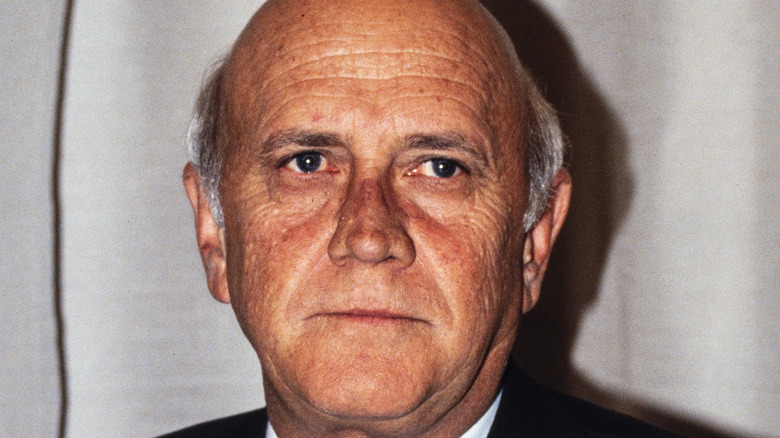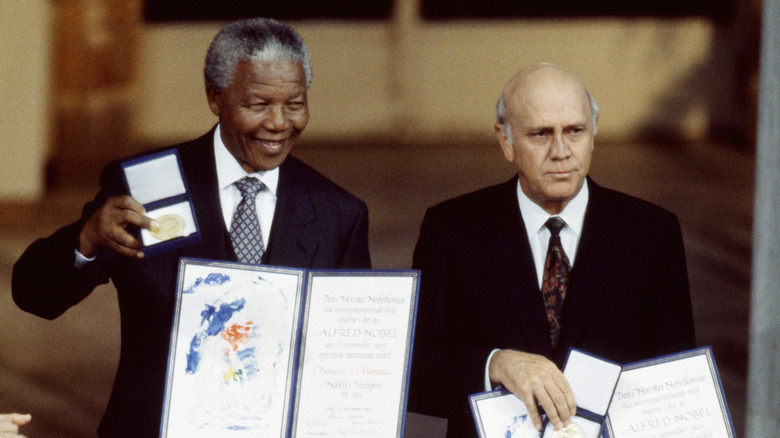The Truth About The Man Who Freed Nelson Mandela From Jail
On November 11, 2021, F.W. de Klerk died at the age of 85 after fighting mesothelioma for the past year (via Reuters). He was the last President of a South Africa under the segregationist apartheid system, which lasted for 46 years until the last year of de Klerk's term. The South African government had until this point stubbornly refused to give up the policy, even during and after the Civil Rights Movement in the United States and similar concurrent events elsewhere in the world. Their decision led to decades of international embargoes and essentially left the country an international pariah.
De Klerk spent much of his political career in support of the system according to CNN, as he was a member and later head of the National Party that had engineered it. He therefore sent shock waves across the nation when months into his presidency in 1990, he announced a number of radical new changes that were meant to challenge and end apartheid. One of these actions was to commute the life sentence of Nelson Mandela, marking the beginning the pair's cooperation in rectifying past wrongs (via Associated Press).
De Klerk and Mandela worked together to end Apartheid
Nelson Mandela had been imprisoned for the first 27 years of his sentence when de Klerk freed him (via BBC). Mandela was a controversial figure; he largely wished to further the progression of equality in South Africa through nonviolent means, but joined a paramilitary group after many protesters were killed in 1960 (via History). Despite his subsequent arrest and disproportionately terrible living conditions in prison, Mandela became a powerful anti-apartheid symbol. In the context of de Klerk efforts, releasing him was a logical step to take. Afterward, Mandela quickly became leader of the ANC party after de Klerk removed its ban.
In 1993, the pair both received the Nobel Peace Prize for their legislative and activist cooperation (via Britannica). The following year apartheid was officially abolished and de Klerk stepped down when Mandela, free to run for office, won the presidential election. He continued to serve under Mandela as one of the government's two deputy presidents until 1996 and as leader of the opposition party (that being the New National Party, which was a post-apartheid re-imagining of the National Party) until 1997.

